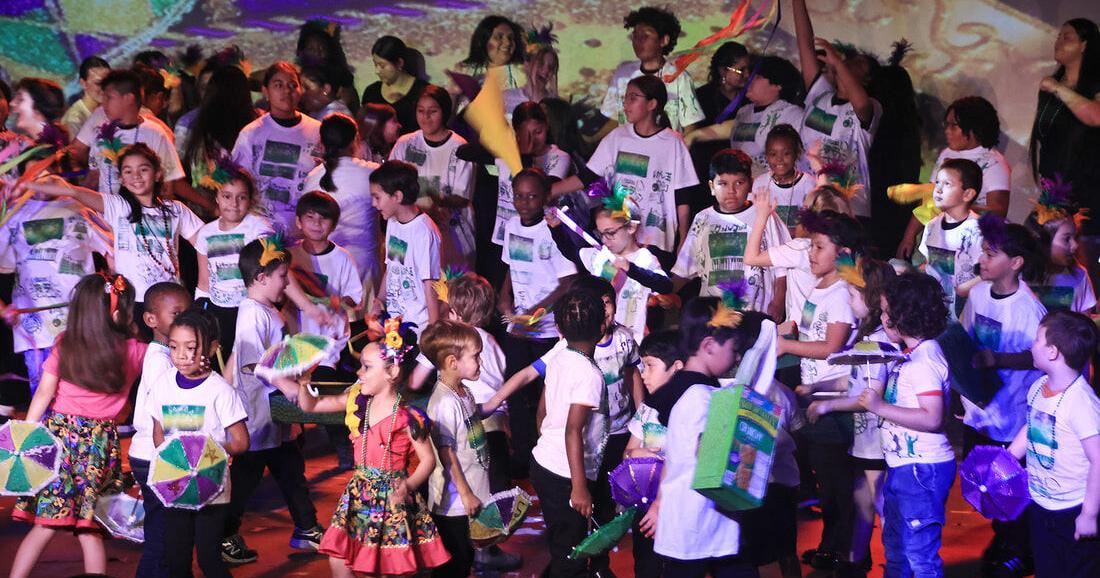Today’s arts educators agree summer arts programs are far more than colorful entertainment—they’re powerful engines for lifelong development. Research consistently shows that engagement in the arts bolsters children’s creativity, emotional intelligence, and academic success, guiding them toward becoming well-rounded, resilient individuals.
Perhaps most importantly, the arts offer a safe space for young people to explore emotions, develop empathy, and strengthen social bonds. Students who engage in art report improved self-expression, emotional regulation, and belonging—a powerful foundation for mental health and civic engagement.
Fostering that vision, some BANF awardees—MECA (Multicultural Education and Counseling through the Arts) and Eternal Gandhi Museum Houston —offer Houston’s youth arts programs that take center stage in putting this research into practice, nurturing creativity, building essential life skills, and forging confident connections among our children.
MECA: Sunburst Summer Arts Camp
This eight-week full-day camp offers a robust curriculum that blends arts education with academics. Designed for students ages 5–13 (grades K–8), the program places strong emphasis on numeracy, literacy, and social-emotional learning.
Culturally inclusive and community-powered, MECA’s approach fosters self-expression and academic confidence. Registration is income-based, with fees on a sliding scale and support from private and public funding sources.
Now through August 1. https://www.meca-houston.org/sunburst-summer-arts.html
Eternal Gandhi Museum Houston
EGMH offers two curriculum-aligned school tours that engage youth in arts-infused learning rooted in peace, empathy, and civic responsibility. The English Language Arts & Reading School Tour guides middle and high school students through dynamic storytelling and textual analysis of Gandhi’s life and legacy, reinforcing skills in speaking, listening, reading, and critical thinking.
Additionally, the Social Studies & History School Tour encourages learners to analyze primary and secondary sources—from colonial India to the American civil rights movement—drawing connections between Gandhi’s strategies and broader social justice narratives. Through docent-led gallery visits combining interactive dialogue and reflective activities, students leave equipped not just with academic insights but with a sense of personal agency to foster peace and equity in their communities.
Ongoing. https://egmh.org/school-programs/
‘A transformation we believe in’
“Arts education is not a luxury—it’s a necessity,” said Sixto Wagan, BANF Executive Director. “When young people have access to creative expression, they gain tools to understand themselves, connect with others, and envision new possibilities. These summer programs do more than keep kids engaged—they cultivate resilience and leadership skills. That’s the kind of community transformation we believe in.”
As arts educators and community leaders emphasize, the power of the arts lies in their ability to ignite creativity and cultivate empathy. These camps are more than summer pastimes—they’re catalysts for lifelong growth.
